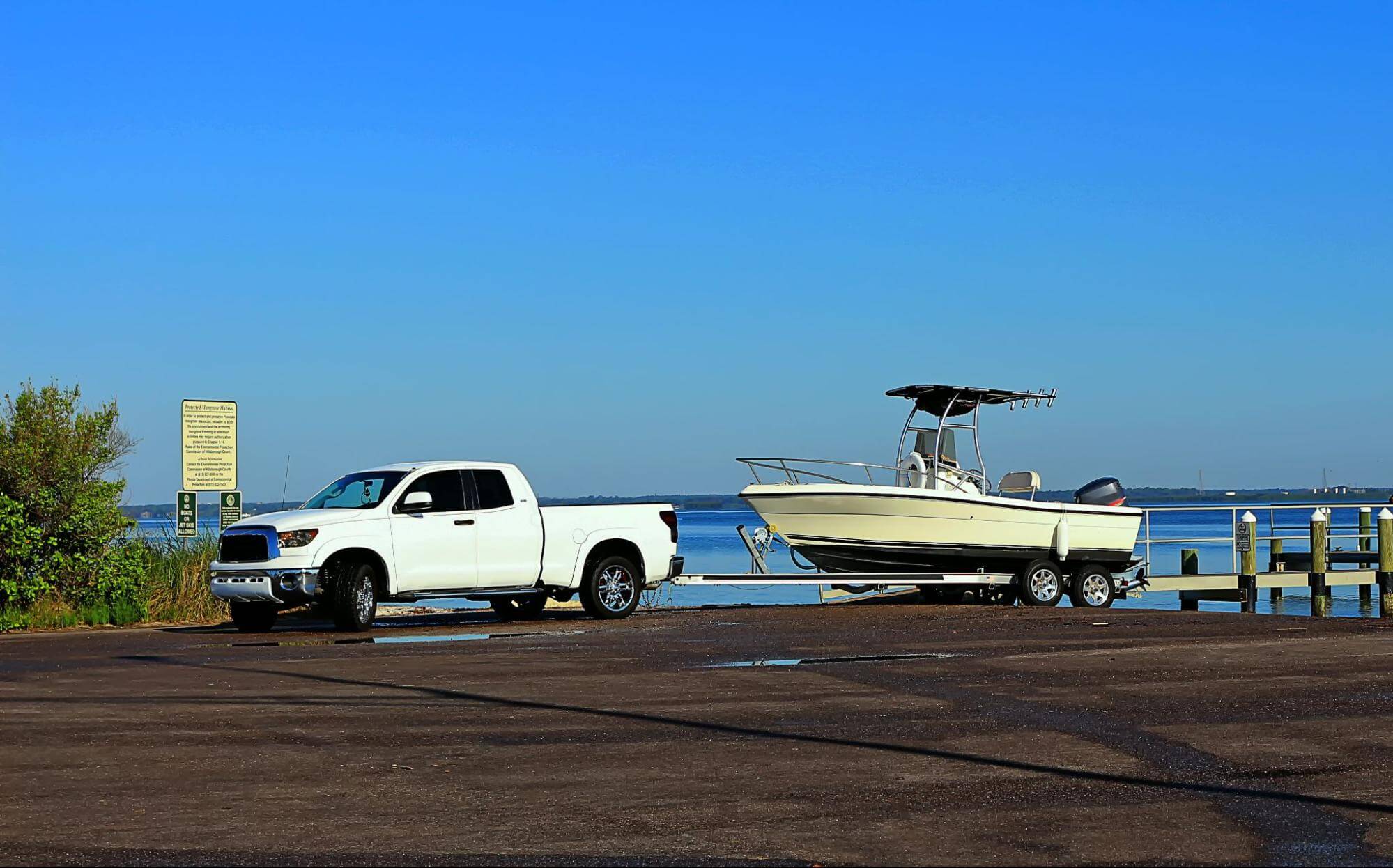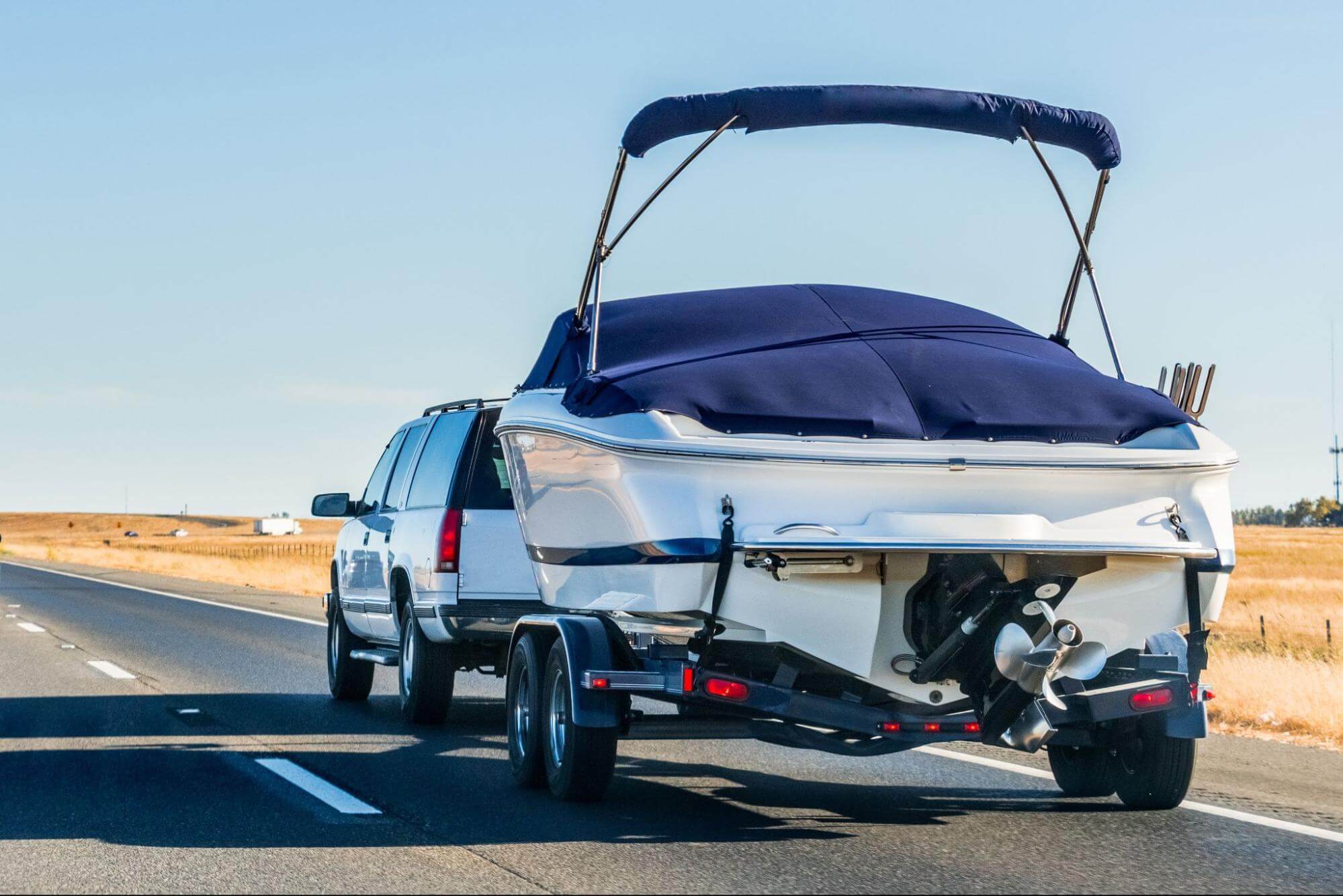

When trying to select the right boat trailer, are you up a creek without a paddle? With many pros and cons for both options, the choice isn’t always simple for every boater: a bunk trailer vs. a roller trailer?
Before you make your decision, consider all the factors. Do you know the difference between a bunk vs. roller trailer? Are pricing and long-term costs important to you? What about convenience, maintenance, and safety levels?
We put the roller trailer and the bunk trailer under the microscope to get a good look at all these issues. Keep reading for all the details about a roller trailer vs. bunk!
Although specifically designed to support the hull during transportation and offloading, the two types of trailers aren’t carbon copies of each other. Millenium Trailers is the answer to all your trailer needs. Our professional staff will equip you with all the right information.
A bunk trailer is a popular choice because it’s constructed with fewer separate parts, relying on friction for launching the boat. The roller trailer evolved from this design but includes more moving parts and relies on gravity for effective launching. It also requires a winching system to pull the boat from the water.
If your boat is aluminum, you may prefer the bunk trailer. The bunk trailer tends to handle the thinner aluminum hull more effectively.
If you’re watching your budget, the bunk trailer is cheaper. It requires less maintenance, so it’ll cost you less in the long run. The multiple parts included in the roller trailer’s design affect the long-term maintenance costs, making this trailer a more expensive purchase. Keep in mind the amount of friction exerted on the bunk trailer can result in its paint stripping away. This can result in future costs. Ensure sliding trailer pads or lubricant are used regularly to avoid unnecessary expenses later. These solutions will curb the amount of friction, reducing the wear and tear on the trailer’s paintwork.

If the wind isn’t strong and the tide conditions are calm, a bunk trailer will usually prove to be the more convenient choice. Partial submersion of the trailer is needed for successful launching or retrieval of the boat. Some locations will allow you to power load the boat. This eliminates the need to crank the boat up. Instead, the trailer is placed deep enough in the water to drive the boat straight onto the trailer. Not all locations allow this method due to sediment erosion. A keel roller positioned at the front of the trailer can help to ensure hassle-free boat launching and retrieval.
A roller is usually a better choice if you are dealing with a shallow ramp, windy conditions, or a rocky water’s edge. Rollers rely on gravity, allowing the boat to glide in or out of the water easily. Not all boaters like the idea of salt water in their trailers. If you opt for a roller, submersion isn’t necessary. If you’re in a location that doesn’t allow you to position your trailer very close to the water, rollers will guarantee a less stressful experience. Take a look at the Millennium Trailers’ virtual tour to discover what’s on offer!
Transporting your boat safely is always essential. Bunk trailers are known for offering more support. This is due to the even weight distribution along the full length of the boat instead of offering some contact points. This prevents the hull from moving around and becoming damaged during towing.
If you use a bunk trailer, your boat will have a lower center of gravity as the bunk trailer is positioned closer to the ground. This design also helps to stop the trailer from swaying while in transit. The bunk is kept in place due to friction. This also minimizes the chance of the boat falling off the back of the trailer should the winch strap malfunction. Less friction will occur If keel rollers are placed in the middle of the horizontal beams. During low tide, the keel rollers will also help to ensure seamless launching and retrieval.
Safety is key! If you select rollers of the correct size and your boat is properly secured, rollers can prove to be an appropriate choice for some boats. Not all boats are compatible with rollers. If your boat has a foam core, the multiple contact points of the rollers can result in dents in the boat’s finish. This is a common problem if rollers are used for a long time. Roller trailers aren’t designed to use friction to secure the boat – only straps are included to secure the boat. This can cause the boat to move around in transit.

Bunk trailers are usually carpet and wood, so the maintenance is minimal. On average, bunk trailer owners will need to seek a replacement after six years. Check out the Millennium Trailers inventory for new trailer options!
Other factors, such as boat type and frequency of use, can influence the rate of wear and tear. Power loading your trailer will make the carpet deteriorate faster. The wood of the bunk trailer can also start to rot. When this occurs, replacement is essential. Damaged wood can cause damage to the boat hull. Marine-grade carpet should be used to ensure mildew and rot don’t become an issue.
Since overall maintenance is straightforward, the bunk trailer can prove to be a cost-effective option. Take a look at Millenium Trailer’s picture gallery for all your trailer needs!
Watch out for problems caused by water submersion. Corrosion of the trailer’s axles, brakes, and springs can occur quickly. This problem is aggravated if your boat is exposed to salt water. These essential components will need to be replaced – often at a quicker rate compared to roller components.
However, roller trailers have moving parts that can break and malfunction. A roller’s initial price tag is more expensive than the bunk trailer, and you’ll pay more for replacement parts. Total submersion in the water isn’t necessary with a roller trailer. This means that corrosion won’t occur as often. If you need financial assistance to purchase your trailer, Millennium Trailers is the answer!
Bunk trailers are the manual option and require a high enough water level for a successful launch. You’ll need to ensure the rear axle is under enough water before launching occurs. This exposure to water, especially salt water, causes corrosion issues further down the line. Concentrate salt remover products can be used on the boat exterior and the engine to prevent corrosion.
Roller trailer users must use a winch to launch and retrieve the boat. Bunk trailer users have the option to power load the boat.
Customize your own trailer at Millennium Trailers! Don’t overlook the type of material used in the manufacturing of the trailer. You shouldn’t have rust problems if it’s galvanized steel, but it can still degrade over time. Steel boat trailers are heavier and hold the road better during towing. Aluminum is lightweight, flexible and resistant to corrosion. Aluminum trailers tend to have more towing issues.
Although most boats can be supported by both roller and bunk trailers, always double-check your boat manufacturer before choosing your trailer. Not all vessels are compatible with both types of trailers. Rollers and bunk trailers have pros and cons, but either choice will get the job done.
Finding the right type of boat trailer is an important choice to enhance your boating experience. The choice isn’t a one-size-fits-all option. If you’ve answered the above questions, you should be closer to discovering if you’re Team Rollers or Team Bunk Trailer!
Roller vs bunk trailer? Contact Millenium Trailers today! If you’re on the fence about making a decision, answering ‘yes’ to the following questions could indicate that you should be in the market for a bunk trailer:
A roller trailer is a right fit if you answer ‘yes’ to more of these questions:
Reflect on these questions before making your choice! And remember, you can request parts at Millennium Trailers!
Millennium Trailers is your trusted partner for high-quality trailers at unbeatable prices. Serving all 50 states, we’ve delivered over 5,000 trailers nationwide.
Established in 1998, we’re a company dedicated to meeting your hauling needs with excellence. Whether it’s cargo trailers or custom living quarters, we provide a wide range of options to suit your requirements. Our knowledgeable and friendly team ensures a smooth buying experience with personalized assistance. Proudly offering competitive pricing, state-of-the-art designs, and easy financing options. Committed to customer satisfaction, we strive to simplify the process of finding your perfect trailer.
Choose Millennium Trailers for a reliable, customized solution that delivers quality and value for your investment.
Copyright 1998 – 2023 Millennium Trailers, Inc.